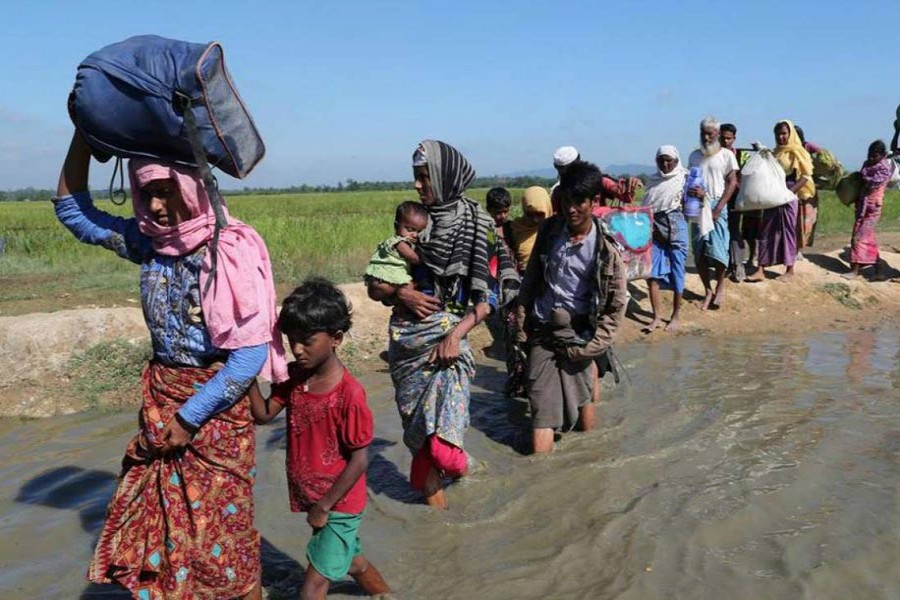Speakers at a seminar in the city on Monday urged the government to submit its observations and documents relating to Rohingyas forced out from Myanmar to the International Criminal Court (ICC) within the given timeframe and assist ICC in building pressure on Myanmar on this issue.
Centre for Genocide Studies of Dhaka University (DU), Centre for Peace and Justice of Brac University and ActionAid Bangladesh jointly organised the seminar on "Accountability: ICC and the Rohingya Crisis" at Nawab Nabab Ali Chowdhury senate building of Dhaka University in the city.
Speaking as the special guest Justice Refaat Ahmed said, it is time to gather all the documents and submit those to the ICC by Bangladesh government, reports UNB.
Mentioning that Bangladesh territory has been specifically targeted by the intentional deportation of Rohingya people by the Myanmar authorities, Justice Refaat said, even if Bangladesh government doesn't make the request for the jurisdiction, it is open for the prosecutor to act on its own initiative to open the investigation into the matter following the Rome Statute.
Claiming that the democracy in Myanamar is not real democracy, Australia's Hornsby Shire Mayor Phillip Maxwell Ruddock urged for imposing sanctions on Myanmar again to resolve the issue.
Chairing the session, Director of Centre for Genocide Studies at Dhaka University, Prof Imtiaz Ahmed said, though there are some legal complexities, Bangladesh should give positive response to ICC.
Though the Rohingya crisis is not a bilateral issue, if Bangladesh wants to try to solve it bilaterally, they can continue the effort as well, he said adding that, yet Bangladesh should submit their observations to ICC before the deadline to contribute in establishing accountability.
On April 9, the Prosecutor of the ICC sought a ruling on the question of jurisdiction that "whether the court may exercise jurisdiction over the alleged deportation of the Rohingya people from Myanmar to Bangladesh". The Prosecution argued that even though Myanmar is not bound by the Rome Statute, the ICC may nonetheless exercise jurisdiction over the alleged crime because an 'essential element' of it, the enforced crossing of an international border, occurred on the territory of Bangladesh, a state party to the statute.
Farah Kabir, Country Director, ActionAid Bangladesh and Manzoor Alam, Executive Director of the Centre for Peace and Justice at BRAC University and Chair of ActionAid Bangladesh also spoke in the occasion.
On April 11 the pre-trial chamber gave its favourable decision and on May 7, the ICC requested the Bangladesh government to submit written observations on the issue of jurisdiction by June 11 this year while June 20 has been set for hearing.


